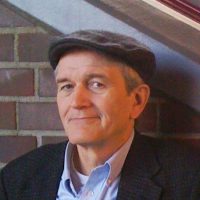Bypass Operation

Thomas O'Donnell
Hertie School of Governance
Thomas O’Donnell was a DAAD/AICGS Research Fellow in April and May 2015. He is an academic, analyst, and consultant with expertise in the global energy system and international relations. At AICGS, his focus is “U.S. Expert Perspectives on German Energy Vulnerabilities.” Dr. O’Donnell’s teaching and research have encompassed the EU and Russia, Latin America, the Middle East, China, and the USA. His PhD is in nuclear physics from The University of Michigan at Ann Arbor; for the past 15 years he has primarily taught post-graduate international relations and development with a focus on energy and natural resource issues, including at The University of Michigan, The Ohio State University, at The New School University’s JJ Studley Graduate Program in International Affairs (NYC), and at Freie Universität’s JFK Institute (Berlin). At his blog, the GlobalBarrel.com, he follows issues of energy and international affairs, and he also writes frequently for the IP Journal (Berlin), Americas Quarterly (NYC), and Petroguía (Caracas).
Throughout 2008-09, Dr. O’Donnell was a U.S. Fulbright Scholar and Visiting Professor in Caracas at the Center for the Study of Development (CENDES) of the Central University of Venezuela (UCV). He is a Senior Analyst at Wikistrat and consults with various other geopolitical, business-intelligence, and advisory firms. Before doing his PhD, Dr. O’Donnell spent a decade working in U.S. industry, gaining technical experience in automobile manufacturing, railway operations, large-scale HVAC, and in power generation. He has also worked as a radiation safety and health-physics officer at a research nuclear reactor and in medical and other settings. In experimental nuclear physics, he conducted basic research at several particle-accelerator and national laboratory facilities in the U.S., Japan, and elsewhere; and is author or co-author on about 40 peer-reviewed scientific papers. Since 2012, he has lived in Berlin with his wife and youngest children. He speaks English, Spanish, and functional German.
On 18 June, during the annual St. Petersburg International Economic Forum, an agreement was signed to build a controversial new “Nord Stream 2” pipeline under the Baltic Sea that would go directly from Russia to northern Germany, with a capacity of 55 billion cubic meters (bcm). The project, which consists of two segments that would run along the same route as the existing two segments of the 55 bcm Nord Stream line, completed in 2011, has met with strong opposition from energy officials in Brussels, as well as leaders in Ukraine and some other EU states.
The article originally appeared in Berlin Policy Journal on October 20, 2015. Click here to continue reading.








